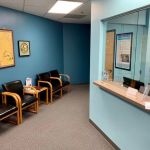The Importance of Regular Oral Cancer Screenings: Protect Your Health
When I first heard about oral cancer screenings, I didn’t think much of it. Like many people, I assumed that if I wasn’t experiencing any visible symptoms or pain, I was in the clear. However, after speaking with my dentist about the importance of these screenings and learning more about oral cancer, I realized just how essential they are for early detection and prevention.
Oral cancer, which includes cancers of the mouth, tongue, lips, and throat, can be life-threatening if not detected early. Unfortunately, many cases go unnoticed until they are more advanced. That’s why regular oral cancer screenings are so important. In this article, I’ll share why these screenings are vital, what to expect during the process, and how they can ultimately save lives.
1. Why Regular Oral Cancer Screenings Are Essential
Oral cancer can affect anyone, and I’ve learned that its early detection is crucial for effective treatment. Regular oral cancer screenings, which are typically part of routine dental checkups, allow dentists to identify early signs of the disease before they become more serious. The reality is that oral cancer can develop with little to no noticeable symptoms, making it easy to overlook without the proper screening.
In my case, I had no idea that oral cancer was something I should even be concerned about until I began learning more. The American Dental Association (ADA) recommends oral cancer screenings as part of routine dental checkups, even for patients who aren’t showing any signs or symptoms. I now understand that these screenings play a crucial role in detecting potential issues early on and ensuring that any abnormalities are addressed before they have a chance to develop into something more serious.
2. What Happens During an Oral Cancer Screening?
During my first oral cancer screening, I was surprised at how simple and quick the process was. The screening is typically done as part of a regular dental exam, so you don’t have to schedule a separate appointment. Here’s what to expect during a typical oral cancer screening:
- Visual Examination: The dentist will carefully examine your mouth, gums, lips, and tongue for any signs of abnormalities, such as sores, white or red patches, or unusual growths. They may also check the inside of your cheeks and the roof and floor of your mouth.
- Palpation: The dentist will gently feel your neck, jaw, and lymph nodes for any lumps or swelling that could indicate oral cancer or other issues.
- Testing: In some cases, your dentist may use specialized tools or light to detect any early signs of cancerous cells. These tests are non-invasive and designed to help identify early-stage problems.
The entire process typically takes just a few minutes and is painless. For me, it was a simple procedure that gave me peace of mind knowing that I was being proactive about my health.
3. The Role of Dentists in Detecting Oral Cancer
One of the key reasons I now prioritize regular oral cancer screenings is the role that dentists play in detecting oral cancer early. While a primary care physician may focus on overall health, dentists have a unique advantage in spotting oral cancer because they are specifically trained to look for changes in the mouth, gums, and throat.
As I’ve learned, oral cancer can often present subtle signs in the early stages, such as small mouth ulcers, pain or difficulty swallowing, or even unexplained weight loss. Since I visit my dentist regularly, they are in the perfect position to spot these potential red flags and take immediate action. If something abnormal is found during a screening, your dentist will refer you to a specialist for further testing or biopsy, ensuring that you receive the best possible care as soon as possible.
4. Early Detection and the Impact on Treatment
After hearing about the benefits of early detection, I did some research and was amazed by how much it can affect the outcome of treatment. According to the American Cancer Society, the survival rate for oral cancer is much higher when detected early, with a 5-year survival rate of over 80% for cancers diagnosed at an early stage. However, if the cancer is detected later, the survival rate drops significantly.
Early-stage oral cancer is typically easier to treat, requiring less invasive procedures, such as minor surgery or radiation therapy. In contrast, more advanced stages may require more aggressive treatments, including major surgery or chemotherapy. In my opinion, the importance of regular oral cancer screenings cannot be overstated—it’s the key to ensuring that any potential issues are caught early, allowing for better treatment outcomes.
5. How Lifestyle Factors Affect Oral Cancer Risk
Another important factor that I’ve learned about oral cancer is the connection between lifestyle choices and risk. While regular screenings are essential, making healthy lifestyle choices can also help reduce the likelihood of developing oral cancer. Some of the major risk factors include:
- Tobacco Use: Smoking and chewing tobacco are among the leading causes of oral cancer. These habits significantly increase the risk, and quitting can lower your chances of developing the disease.
- Excessive Alcohol Consumption: Heavy drinking is another significant risk factor for oral cancer. Combining alcohol with tobacco use increases the risk even further.
- HPV (Human Papillomavirus): The HPV virus, particularly HPV type 16, is linked to a growing number of oral cancer cases. HPV vaccinations can help reduce this risk, and I’ve found that discussing vaccination with my healthcare provider is an essential part of preventive care.
Maintaining a healthy lifestyle, including avoiding tobacco, moderating alcohol intake, and getting vaccinated against HPV, can help reduce your overall risk of oral cancer. However, regular oral cancer screenings are still essential for early detection, even for those who live a healthy lifestyle.
In conclusion, regular oral cancer screenings are an important part of maintaining overall oral health. By catching early signs of oral cancer, you can significantly improve your chances of successful treatment. I now make it a priority to visit my dentist for regular screenings and encourage everyone to do the same. For more information on the best dental practices for oral cancer prevention and detection, check out Dentistry Toothtruth for expert recommendations and services tailored to your needs.







 Aspen Dental - Nashua, NH4.0 (480 review)
Aspen Dental - Nashua, NH4.0 (480 review) Coast Dental4.0 (514 review)
Coast Dental4.0 (514 review) Drs. Allen and Brian Shapiro4.0 (6 review)
Drs. Allen and Brian Shapiro4.0 (6 review) Cerritos Dental Surgery5.0 (137 review)
Cerritos Dental Surgery5.0 (137 review) Valleywise Community Health Center - Mesa3.0 (252 review)
Valleywise Community Health Center - Mesa3.0 (252 review) West Covina Dental Group and Orthodontics4.0 (274 review)
West Covina Dental Group and Orthodontics4.0 (274 review) The Importance of Oral Health Education During Pregnancy for a Healthy Pregnancy
The Importance of Oral Health Education During Pregnancy for a Healthy Pregnancy Best Tips for Brushing Your Teeth Properly for Healthy Gums: Essential Techniques for Oral Health
Best Tips for Brushing Your Teeth Properly for Healthy Gums: Essential Techniques for Oral Health Why Skipping Dental Checkups Can Lead to Bigger Oral Health Problems
Why Skipping Dental Checkups Can Lead to Bigger Oral Health Problems Advantages of Porcelain Dental Restorations
Advantages of Porcelain Dental Restorations How Can Diabetes Cause Tooth and Gum Problems? Preventing and Managing Oral Health Issues
How Can Diabetes Cause Tooth and Gum Problems? Preventing and Managing Oral Health Issues Healthy Habits for Promoting Good Oral Health and Hygiene: Tips for a Healthy Smile
Healthy Habits for Promoting Good Oral Health and Hygiene: Tips for a Healthy Smile